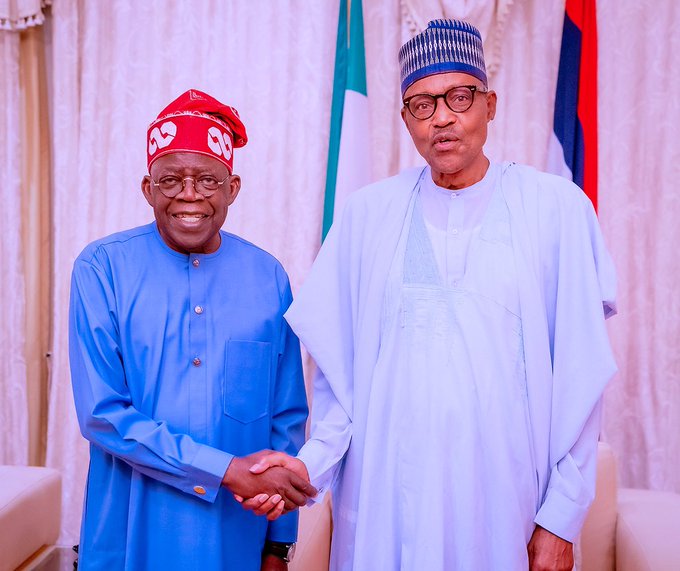In a startling revelation, Osita Okechukwu, a founding member of the All Progressives Congress (APC), has claimed that President Muhammadu Buhari’s kitchen cabinet was sharply divided over the appointment of Chief John-Odigie Oyegun as the chairman of the party’s presidential screening committee ahead of the 2023 general election.
Okechukwu, a long-time ally of the ruling party, discussed the internal rift that took place among Buhari’s closest aides, painting a picture of a presidency fraught with disagreement at a time when the party’s future seemed uncertain. The admission shines a light on the deep political undercurrents at play within the APC as it prepared for one of the most contentious elections in Nigeria’s history.
A Divided Kitchen Cabinet
In a detailed statement, Okechukwu asserted that “the President’s kitchen cabinet was not united in its decision to support the role of Oyegun in the 2023 presidential screening.” He explained that while some in Buhari’s inner circle were adamant about backing the former APC national chairman, others, including key figures within the party, expressed reservations about his leadership and influence.
“The split opinion over Oyegun’s appointment was very much evident,” Okechukwu said, noting that while some party figures were in favor, others questioned whether his involvement would truly benefit the party in such a crucial election cycle. The appointment of Oyegun had been viewed by some as a crucial move to ensure credibility in the screening process. However, others felt his history within the party, particularly in dealing with former political allies, made him a controversial figure.
“The division within the kitchen cabinet was clear,” Okechukwu remarked, emphasizing the dissonance between party members who could not agree on the best path forward. This division, according to Okechukwu, was not just a personal one but also indicative of deeper strategic disagreements concerning the APC’s leadership and its relationship with key stakeholders ahead of the 2023 elections.
Ojudu’s Allegation Denied
Okechukwu also took the opportunity to address claims made by Babafemi Ojudu, a former Special Adviser to President Buhari on Political Matters, regarding Buhari’s alleged lack of support for Bola Tinubu’s presidential ambitions. Ojudu had publicly stated that despite the long-standing friendship and political alliance between Buhari and Tinubu, the former president did not actively support the latter’s bid for the presidency in the 2023 election. Ojudu even went as far as suggesting that Tinubu “outmaneuvered” Buhari in various aspects.
Okechukwu, however, strongly rejected this claim, asserting that Buhari had indeed shown support for Tinubu, but his approach was more indirect. He explained, “The argument was not whether Buhari supported Tinubu, but rather how he supported him. Buhari did not impose any candidate on the delegates. His position was clear: let the delegates decide at Eagle Square.”
Okechukwu pointed to a key moment when Buhari sided with the camp led by then Minister of Education, Malam Adamu Adamu, stating that he could not abandon a man who had been loyal to him throughout the years. “Buhari made it clear that he could not betray Tinubu, who had stood by him during difficult times,” Okechukwu said.
The Tensions Around the Presidential Aspirants
The discussions within Buhari’s cabinet, Okechukwu added, were centered on whether to disqualify some of the 23 presidential aspirants vying for the APC’s ticket due to a range of allegations swirling around them. Among those in contention was Tinubu, whose candidacy was mired in controversy, particularly over the integrity of his political record.
“At the time, the question was not about Buhari’s personal support for Tinubu,” Okechukwu elaborated, “but whether some of the aspirants, including Tinubu, should be disqualified given the mounting allegations against them.” He further explained that Buhari’s decision to not intervene directly in the race was indicative of his desire not to play favorites, allowing the delegates to make their own choice at the party’s primary.
This sentiment was echoed by Okechukwu, who revealed that Buhari’s role in the election process was more passive than many had assumed. “There was a real lack of direction from the President on who to support,” Okechukwu said. “If Buhari had been truly behind Lawan, he would have made his intentions known to the APC Governors Forum, who repeatedly urged him to make a clear endorsement.”
Buhari’s Legacy and Influence
The deep divisions within Buhari’s kitchen cabinet are a reflection of the complexities surrounding the leadership of the APC as the country moved towards the 2023 elections. While Buhari remained an influential figure, his leadership style, characterized by a non-interventionist approach, left many of his party members uncertain about his true preferences.
As Okechukwu put it, “Buhari’s lack of clear intervention allowed the party to engage in internal debates over its leadership. This was not the same approach as in previous elections where the President had played a more decisive role in guiding the party’s direction.” The result was a fractured APC leadership, with different factions aligning themselves with various candidates based on political interests, allegiances, and strategic calculations.
Political Allegiances and the APC’s Future
The internal divisions within the APC were not just about personalities; they also reflected the broader power struggles within Nigerian politics, especially concerning the 2023 election. Buhari’s ability, or perhaps reluctance, to openly back Tinubu, despite their long history together, became a source of tension.

